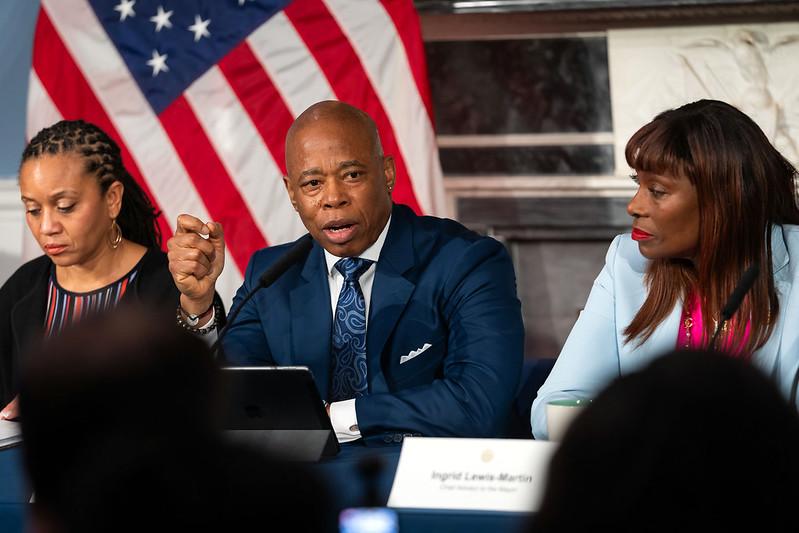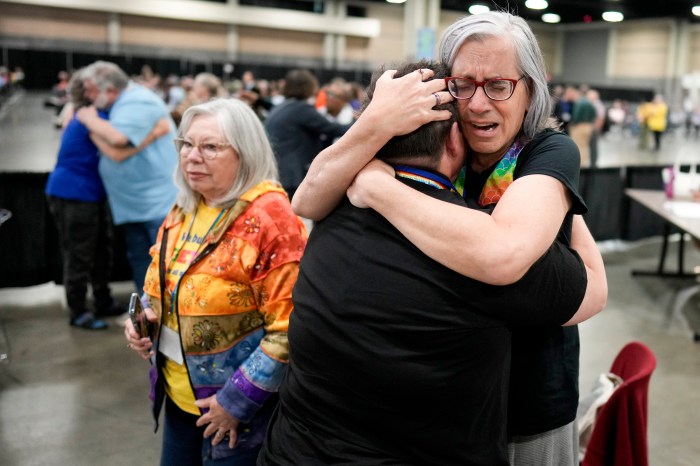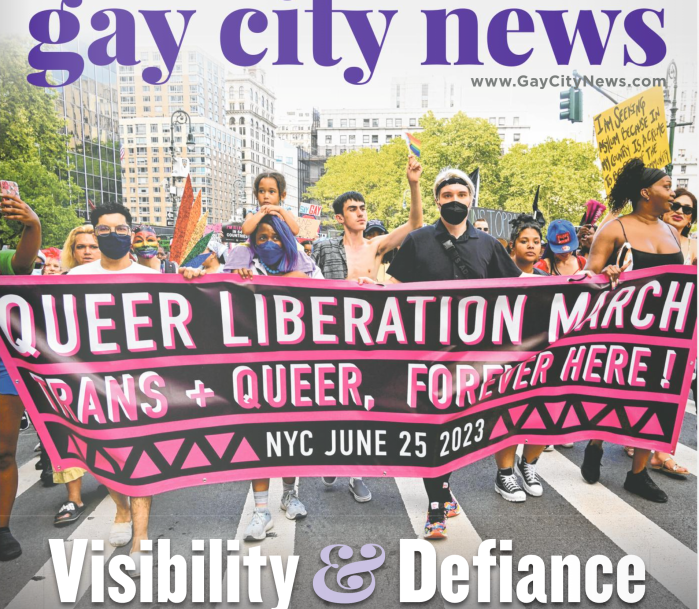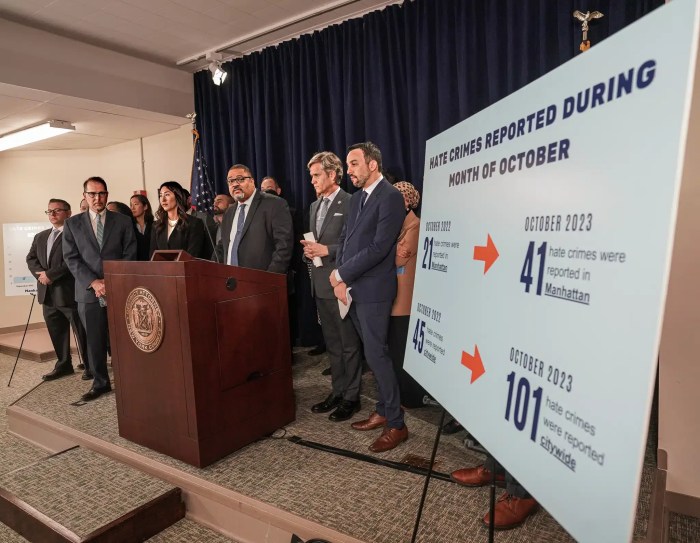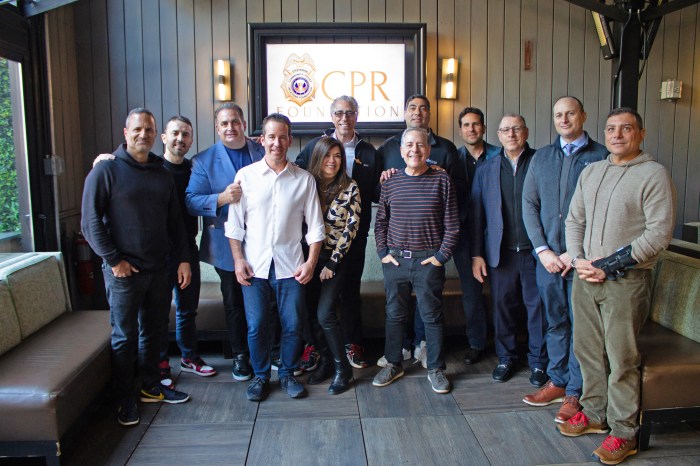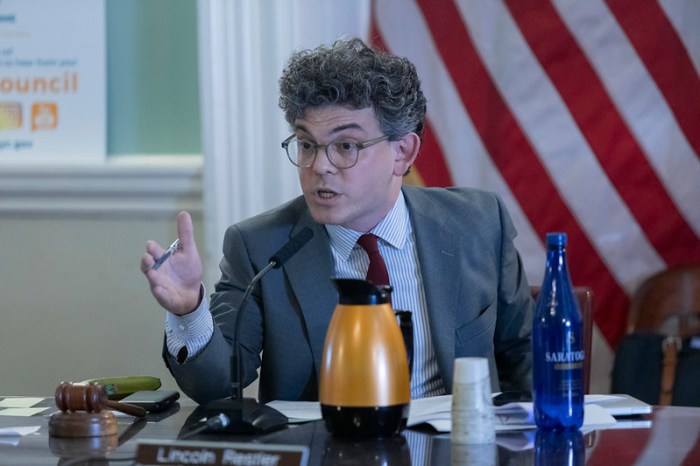Renée out-divas Lily Pons; funny, funny Jews; and the disco queen’s fate
After Bush’s re-election, the tsunami disaster and this new strain of AIDS, God’s existence once more came in for some serious questioning, but I can assure you that She does indeed exist, and her name is Chita Rivera.
So sensational was she in her show “And Now I Sing” at Feinstein’s at the Regency on February 23, that I found it necessary to tell her exactly this in the green room presence of not one, but two, Catholic priests––and they didn’t protest.
Backed by an impeccable trio headed by terrific Mark Hummel, Rivera frankly brought the audience to multiple orgasms, completely in synch and completely loving every moment of the inestimable pleasure she kept feeding us. Freed from the strictures of ponderous book musicals like “The Rink” and “Kiss of the Spider Woman,” Rivera was able to fully demonstrate the kind of ineffable sexiness, smarts, gigantic rhythmic chops and even bigger heart she thrilled us with in “Chicago.” No one who saw the original production will ever forget that curtain rising on her opening “All That Jazz,” an instant classic moment in Broadway history.
Dressed in the most seductively ladylike style by Donald Deal, Rivera proved a class act all the way, with nary a single longeur or the drearily heavy-handed self-revelation into which so many one-person shows lapse.
“I won’t dance! How could I?” she sang, referring to the tiny stage, but she managed to do just that, even mincing over to sit with pianist Hummel, after going “Chassez, chassez, pirouette, and pliez!”
Highlights of a highlight show: John Kander and Fred Ebb’s “Love and Love Alone,“ from “The Visit”––which Rivera told me folks are still trying to bring into town––which she turned into the most heartbreaking aria, dedicating it to the late Mr. Ebb; a powerfully definitive “Where Am I Going” from “Sweet Charity”; an inspired, frenzied Jacquel Brel “Carousel”; a special Ebb-lyricized “Barber of Seville” number, which showed her joyful finesse in delivering this kind of special material, a truly dying art if ever there was; and “Mas Que Nada,” to which she solo-sambaed with explosive radiance. I don’t think I’ll see a more beautiful sight this year than her shaking it to “Oh, Ariana! Oba! Oba! Oba!”
When Rivera en-cored with “All That Jazz,” with the original, unmatched Bob Fosse moves, she took us all to cabaret heaven. She ended with “I’m in Love Again” (Cy Coleman/ Peggy Lee) in a velvety voice that was as lulling and supple as an 18-year-old’s.
“I nearly lost it during ‘Love and Love Alone,’” she said afterwards, still not completely at terms with Ebb’s passing. Asked if this gig hinted at what was going to be in her upcoming autobiographical Broadway show, she said, “Some of it. My God, we’re going into rehearsals in May!”
We reminisced about her cabaret debut, years ago, in the Back Lot room of the gay L.A. disco Studio One. I recall, even as the maddest 18-year-old disco bunny, being completely lured off the dance floor, hypnotized by her lulling rendition of Rodgers and Hart’s “You’re Nearer.”
Goddesses indeed walked the earth here in Manhattan last week and, representing the classical side of things, Renée Fleming pillaged Carnegie Hall on February 21 with a half-Baroque/half-lieder concert that gave bracing explanation as to why she is the biggest star in opera today. She swept onstage in an Oscar De La Renta confection of feathers, skintight beads and miles of white tulle that I can guarantee will not be matched by anything worn at this year’s Oscars, and you could positively hear the old-timers in the audience going, “Not since Lily Pons…”
Fleming made powerful, intensely lyric drama of Purcell’s “Tell Me, Some Pitying Angel,” and was even better in the lieder segment––weird how her diction is better in German than English; she did, after all, study with Elisabeth Schwarzkopf.
“No concert is complete without some Richard Strauss,” she said, before encoring with four gorgeously rendered songs of his, an announcement which induced frenzied clapping from the very young boy sitting next to me, as if she’d said “Eminem.”
This is why we live in New York.
The panel I moderated at the Lincoln Center Library for the Performing Arts on February 19, “Back in the Day … ‘til Now,” was a lively event, attended by a crowd of the disco faithful, young and older. Speakers included Carmen D’Alessio, “Architect of Studio 54,” whose Rolodex created that original, fierce club crowd within the velvet rope; Michael Fesco, owner of the A-list gay men’s club, Flamingo; Mel Cheren, self-described “Godfather of Disco,” of West End Records and Paradise Garage; pioneering DJ Nicky Siano; nightlife empress Chi Chi Valenti and Kerwyn Marks, who produced “Maestro,” an essential documentary about the whole scene.

D’Alessio was particularly informative about how she brought together talented interior and lighting designers Ron Dowd and Jules Fisher to create 54’s magical ambiance. As for club owners, Steve Rubell and Ian Schrager, whose hotels have made him a current total arbiter of chic, she said, “They were from the suburbs. I had to take those boys to Barneys and buy them Armani, get them out of that polyester!”
So, you see, in terms of that infamous door policy, the oppressed became the oppressors.
Cheren spoke about the perennially tardy, ultimate disco diva Grace Jones and how he once suggested she do another classic cover song like her “La Vie en Rose.” She came up with Candi Staton’s “Young Hearts Run Free,” but when Cheren approached pioneering mix master Tom Moulton about this, he disdainfully replied, “She’d be better on ‘Victim.’” Jones did, indeed, eventually record that, but, due to some internecine strife—much of it sexually related—Cheren said, Moulton never released the record and “it’s still around, somewhere.”
Cheren also recalled Madonna’s notorious appearance at the Paradise Garage: “At one point, she screamed, ‘All you niggers, get over here!’ Now if Loleata Holloway or Gwen Guthrie had said that, it would be different, but everyone was like, ‘Who is this little white bitch?’”
Valenti graciously acknowledged how honored she was to be in this company, but it should be equally acknowledged that her MotherNYC events, like her “Night of a 1,000 Stevies” for Stevie Nicks fans are the closest we have today in terms of the glamour, energy, creativity and sexually adventurous excitement of those halcyon ‘70s party days.
My favorite moment came from Fesco, who dispelled the urban legend about the fate of a certain live pig hired as prop for one of his original Black Parties: “We had about seven jail cells with various ‘tableaux’ going on in each, and a toilet. One of them had this enormous pig and some magazines for the occupants to pass the time with. Well, this rumor got started that the pig was fed so many drugs that it died. It haunts me to this day, but I remember one queen being really upset and saying, ‘That pig ate the Architectural Digest before I could read it!’”
Daniel Goldfarb’s “Modern Orthodox,” seen on February 24, is a laugh-a-minute romantic comedy that skewers religious fanaticism as well as prejudice, in the most rambunctiously savvy way. Directed with major verve by James Lapine, who richly tills this fertile humorous ground, the cast creates unforgettable characters at once totally obnoxious and lovable.
It’s good to see Molly Ringwald, probably in her best role since she ruled the screen as the ‘80s definitive teen queen, bringing complete reality to Hannah Ziggelstein, an overworked OB-GYN, too exhausted to appreciate the prospect of her lover (Craig Bierko) proposing to her at uber-chic restaurant, Ouest. Bierko, one of the handsomest, most charming should-be stars in the business, has an intriguing puppyish charm as well as a dangerous angry streak as the so-called “Ersatz Jew” of a financial planner, in search of the right diamond ring at the best price.
Jason Biggs as the Yankee yarmulke-sporting, too-strictly orthodox gem merchant provides the real comic thrust of the show, creating a character so inane, grating and wrongheaded, that you can’t take your eyes off him. He has frenziedly inspired moments that recall Jerry Lewis at his most brilliant, only Biggs is a lot easier to take.
Jenn Harris, as his almost-but-not-quite equally religious beloved, momentarily steals the show from even him, with a sleepy, slightly askew comic timing that reminded me of no less than the great Madeline Kahn. The play is so chock-a-block with hilariously cutting lines––my favorite: “There is no Yiddish word for ‘thin’”––that you, too, will probably leave the theater crying, “Baruch Ha’shem!”
Contact David Noh at Inthenoh@aol.com.
gaycitynews.com















